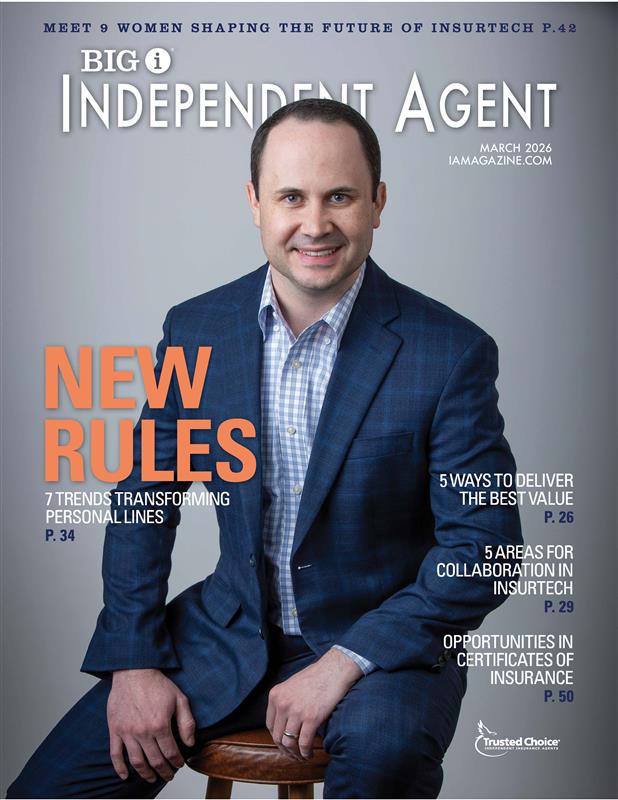Discontinued Product Liability and Occurrence CGLs

An insured manufactures industrial insulation products and is covered on its commercial general liability policy under Code 55715: Insulation Products Manufacturing.
Two distinct products were covered under Code 55715: one proprietary product manufactured from scratch, and one fabricated from a third party’s product.
Recently, the division that performed the fabrication was sold in an asset-only sale. The insured continues to manufacture the proprietary product and will continue to carry a CGL. The named insured will be consistent with prior policies.
Q: Is discontinued products liability necessary, or will the ongoing CGL cover the liability for the fabricated products manufactured and sold before the sale of that division?
Response 1: The named insured, which manufactured the product, is continuing in business but has sold off one of its product lines through an asset purchase. The CGL policy you insure the client with is an occurrence policy. The insuring agreement says:
This insurance applies to “bodily injury” and “property damage” only if:
(1) The “bodily injury” or “property damage” is caused by an “occurrence” that takes place in the “coverage territory”’;
(2) The “bodily injury” or “property damage” occurs during the policy period;
When an insured makes or sells a product, the date of manufacture is irrelevant; what matters is when the occurrence happened. As such, the carrier for the insured will have to pick up that claim when an occurrence takes place.
What Do the Experts Think?
Your insured won’t need a discontinued products policy if it is still in operation under the same name and still carries an occurrence policy.
Response 2: There is technically no such thing as discontinued products coverage. Under the CGL form CG 00 01, product liability for both continuing and non-continuing operations are covered.
An underwriter may choose to specifically exclude the coverage by endorsement, in which case the carrier should offer a discount for excluding the exposure, or the underwriter may choose to issue a specific premium charge. Either way, you should discuss with the underwriter and get them to confirm their decision in writing.
Response 3: As long as the entity hasn’t changed and the coverage was adequate before the sale of some assets, discontinued products shouldn’t be needed.
Since this represents a significant change in the operation, it’s probably something you’re obligated to disclose to the insurance company. But since it eliminates a potential source of product liability, the carrier shouldn’t have any problems.
The problem in cases like this comes when you want to change carriers. Since the policy would pick up the exposure from that old product, it’s something that would need to be disclosed to a new underwriter. If it’s not disclosed and a claim arises, you, as the agent, could be sued by the insurance company for failing to disclose an important fact. And if it is disclosed, there’s a possibility that a new company will exclude liability from that old product.
More on Product Liability
Sales like this sometimes involve contractual provisions that involve insurance. Due diligence requires you to inquire about any insurance-related language in the sales agreement. Have your client request an opinion from legal counsel based on the asset-only sale.
Response 4: An unendorsed occurrence CGL normally includes liability for all products, including those manufactured before inception. As long as the entity that did the fabrication is included as a named insured, you should have coverage for bodily injury or property damage that happens during the policy term and that results from products manufactured and sold before the asset sale. It does not matter if the policyholder is continuing to manufacture that product in the current policy year. Discontinued products and all other past products are included.
You should look for any classification limitations or exclusions that could apply to past products from an insulation contractor, like asbestos, per- and polyfluoroalkyl substances (PFAS) or exterior insulation and finish systems (EIFS).
When a client decides to stop purchasing coverage, such as if a sale of the entire company occurs, or the current insurer has an exclusion that could apply to a past product, a separate policy should be offered.
This question was originally submitted by an agent through the Big “I” Virtual University’s (VU) Ask an Expert service, with responses curated from multiple VU faculty members. Answers to other coverage questions are available on the VU website. If you need help accessing the website, request login information.
This article is intended for general informational purposes only, and any opinions expressed are solely those of the author(s). The article is provided “as is” with no warranties or representations of any kind, and any liability is disclaimed that is in any way connected to reliance on or use of the information contained therein. The article is not intended to constitute and should not be considered legal or other professional advice, nor shall it serve as a substitute for obtaining such advice. If specific expert advice is required or desired, the services of an appropriate, competent professional, such as an attorney or accountant, should be sought.














